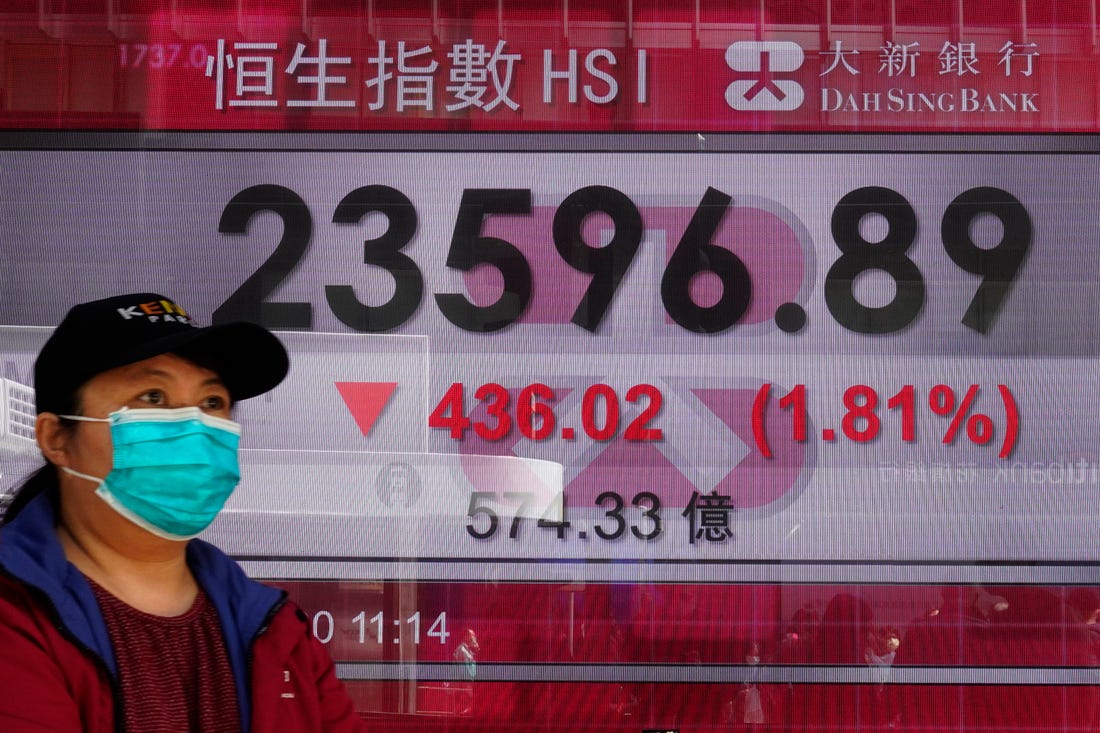Shares in Asia took a hit on Monday even after the U.S. Federal Reserve slashed its benchmark interest rate, while Australia’s market suffered its worst loss in history.
SEE ALSO: Japan to Pay Additional $13.8bn for 2011 Earthquake Reconstruction
Markets in Paris, London and Frankfurt were meanwhile falling sharply lower as the trading day got under way in Europe.
Australia’s benchmark S&P/ASX200 index continued to dip throughout the day, closing 9.7 per cent down to 5,002 points, while the broader All Ordinaries index was down 532.5 points, or 9.52 per cent, to 5,058.
Sydney stock market’s losses came despite an announcement earlier by the Reserve Bank that it would begin buying bonds to help the coronavirus pandemic-hit economy.
Japan’s benchmark Nikkei 225 Stock Average lost 429.01 points, or 2.46 per cent, to close at 17,002.04 after gaining 0.11 per cent in the morning.
The Nikkei began to sink after the Bank of Japan made a decision on additional monetary easing in an emergency meeting to fight the economic impact of the coronavirus pandemic.
The central bank decided to introduce new one-year corporate loans at the interest rate of 0 per cent and to raise the limit to purchase corporate bonds by 2 trillion yen (18.8 billion dollars).
The bank will also double the upper limit of its purchases of exchange traded funds to 12 trillion yen.
Hong Kong’s Hang Seng Index plummeted 4.03 per cent and South Korea’s Kospi Index lost 3.19 per cent while the Shanghai Composite index tumbled 3.4 per cent and the Taiwan Stock Exchange closed down 4.06 per cent.
Meanwhile, India’s bourses suffered sharp losses with the benchmark 30-share Sensex losing 5.76 per cent and the broader 50-share S&P CNX Nifty of the National Stock Exchange falling 5.45 per cent.
The market sentiment deteriorated further as the number of coronavirus cases in India rose to 110 on Sunday.
In Europe, markets plunged at their start with Germany’s benchmark DAX index falling by 5.6 per cent in opening trading to 8,715 points, dropping below the 9,000-point mark.
Shares in the DAX’s 30 blue-chip companies fell in value to a low not seen since February 2016, as global measures to contain the spread of the new coronavirus take their toll on Europe’s largest economy.
The fall represented a new milestone in the index’s weeks-long decline, after it dropped below 10,000 points.
Huge declines were also seen in London and Paris, with exchanges there both down more than 7 per cent at the start of the day.

